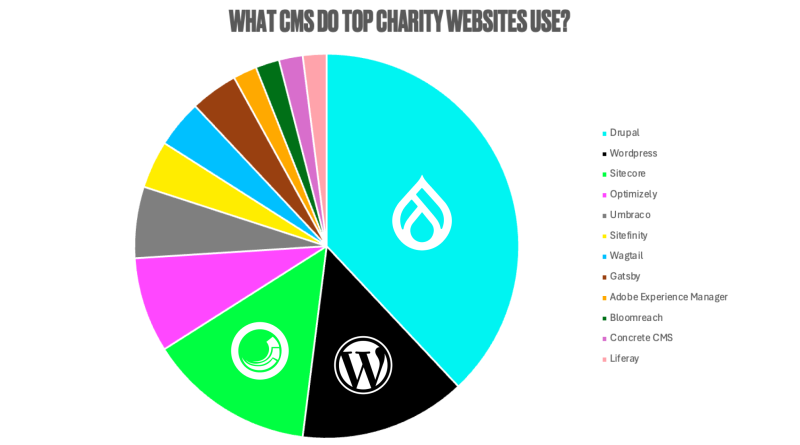We analysed the top 50 charity websites in the UK to see what content management system they use. The results show a clear front-runner.
Content management systems (CMS) allow digital teams to control, alter and expand their websites. There are loads of them out there, from open-source tools to enterprise systems with hefty licencing costs. They all have their strengths and weaknesses, but what content management sysems are the most favoured among major charities in the UK?
To find out, we analysed the websites of the 50 largest charities in the UK by revenue, to uncover what CMS they use.
As you can see in the chart below, there’s a wide variety of content management systems being used by the UK’s top charities.
